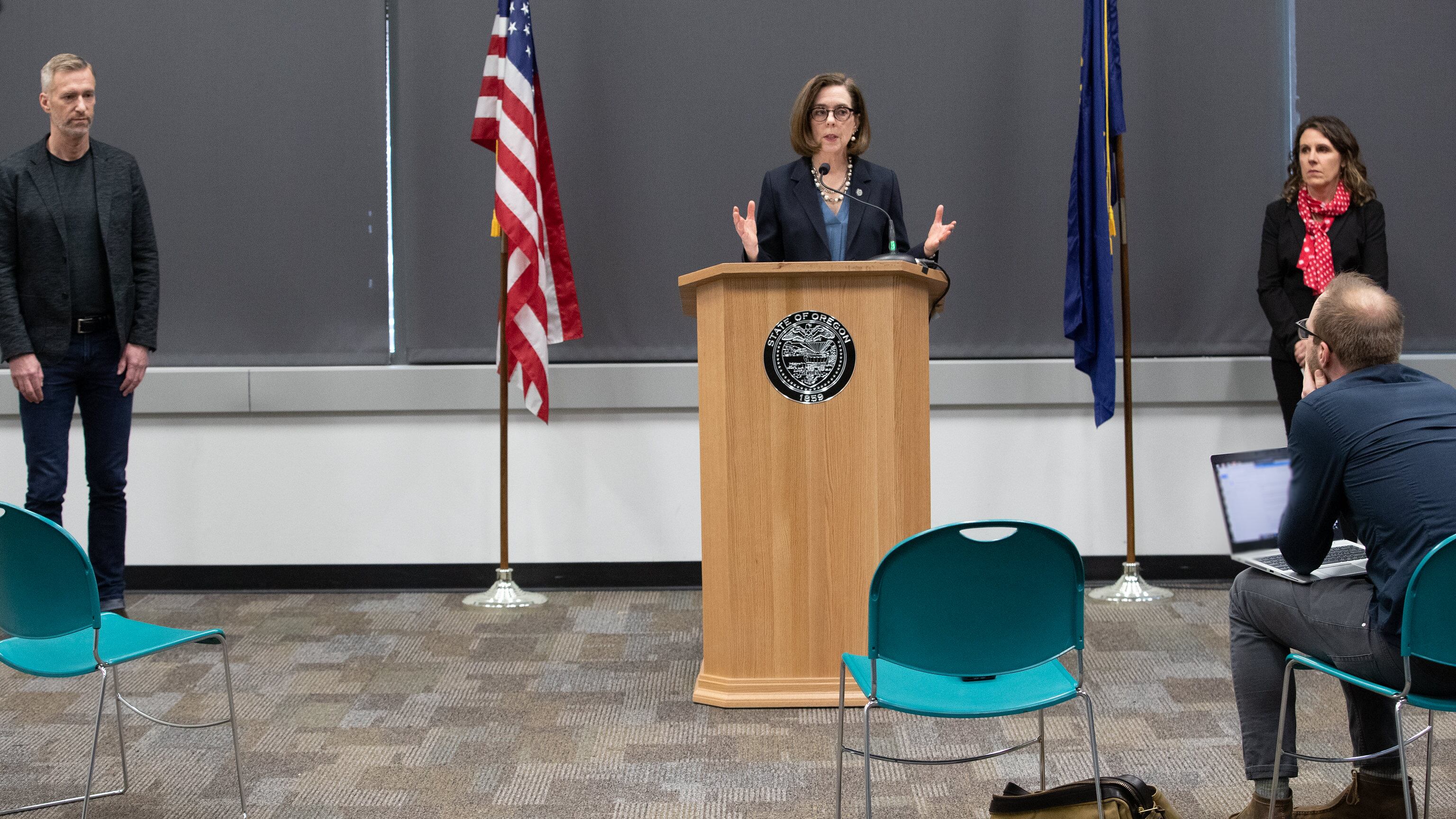Willamette University professor Paul Diller laid out a case on his blog Friday for why Gov. Kate Brown should have to regularly renew the emergency executive orders she has issued during the COVID-19 pandemic.
He's not saying the orders are unnecessary. Rather, he's looking at whether Brown has the legal authority to continue the state of emergency without periodic justification.
Diller analyzed two state laws that give Oregon's governor emergency powers—one from 1949 and one from 2007—and argues that Brown's authority to issue open-ended emergency orders rests on a questionable legal interpretation.
The older law, Oregon Revised Statute 401, passed in 1949, refers to "general emergencies." The newer law, ORS 433, from 2007, refers more specifically to public health emergencies.
The 2007 law, Diller found, requires the governor to justify a renewal of her emergency orders every 14 days. The 1949 law allows open-ended decrees but, Diller found, appears less applicable.
"The emergency orders Brown has put in place are astonishing in scope, even if merited," Diller writes. "The default in a democracy should be that unilateral executive decrees expire, and that freedom of movement, worship, play and association resume in all but the most extreme circumstances.
"If the orders expired automatically after 14 days, the governor would be compelled to justify their renewal each and every time she wanted to extend them, at least in the public arena, rather than laying out a 'framework' for an uncertain time frame of Oregon's reopening, as she has."
Diller has taught law at Willamette University since 2005 and directs the university's certificate program in law and government. In his scholarly work, he is part of a "national effort to preserve and promote local authority in the face of more frequent and aggressive preemption." He is a Democrat who ran briefly for the state Senate in 2018.
Diller notes that many other governors have issued orders similar to Brown's.
"What is notably distinct about Brown's orders, however, is their indefinite length," he writes. "Unlike the executive orders of most of her counterparts, Brown's often have no expiration date."
Diller found there are only six other states that allow the kind of open-ended orders in place in Oregon. In states such as New York, the state most affected by the COVID-19 pandemic, Diller noted, Gov. Andrew Cuomo must renew emergency orders every 30 days.
"Given the extremely important liberty interests at stake," Diller writes, "it is certainly not too much to ask the governor to justify publicly each and every renewal of an emergency order."
Earlier this week, a man named Michael Robinson wrote to Brown, making a similar argument.
"That such renewals may be inconvenient for the governor is irrelevant," Robinson wrote to Brown on April 22. "As Oregon's highest executive you must, more than anyone else, obey the laws of our land."
Brown's spokeswoman, Liz Merah, said the governor's actions have been thoroughly legally vetted.
"An emergency properly declared under ORS chapter 401 [the 1949 law] also gives the governor public health emergency powers under ORS 433.441 [the 2007 law] during the duration of the declared emergency," Merah said in a statement.
Merah added that Brown's initial declaration of emergency March 8 included a 60-day time frame. "The governor may extend this emergency beyond that initial 60-day period," Merah said.
Diller said he's not convinced.
"The governor's office is correct that ORS 401 allows for a state of emergency of indefinite length (unless terminated by a joint resolution of the Legislature)," Diller tells WW. "The question I have raised is whether ORS 401 is the right statute for this emergency, or whether ORS 433, with its 14-day renewable limit on emergency declarations, is the correct authorizing statute because it specifically applies to 'public health emergencies.'"
